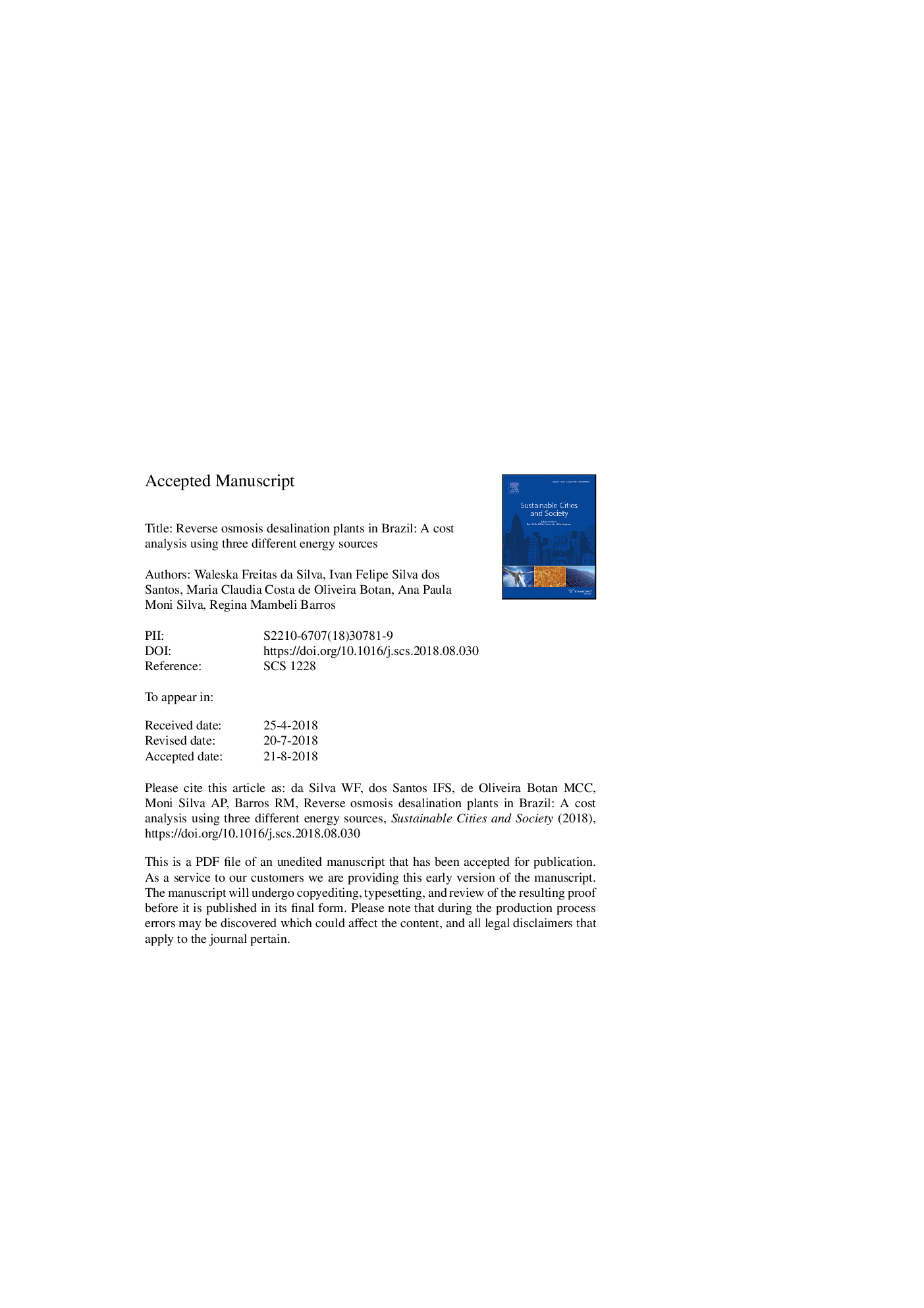| Article ID | Journal | Published Year | Pages | File Type |
|---|---|---|---|---|
| 10132152 | Sustainable Cities and Society | 2018 | 40 Pages |
Abstract
Brazil is a country with a vast amount of water resources. However the country's population is largely concentrated in areas where water access and availability is unfavorable. Water supply issues have grown more evident amongst recent shortages by generating grave consequences for public health, impacts on quality of life and hurdles to the country's overall development. Desalination stands out as an alternative for diversification of the country's water matrix to aid in solving these problems, given that this type of technology is capable of supplying water in the quantity and quality needed for human, industrial and agricultural consumption. However the costs and feasibility related to this technology within the Brazilian scenario are not known. The current study carried out cost analyses related to the implementation of Reverse Osmosis desalination for four scenarios, all with different importation rates, considering three energy sources. The study's results demonstrated more viability in reverse osmosis implementation when using natural gas to generate electrical energy, given that the flow rate production costs for this technology was between 0.88 and 1.97 USD/m3. However, the importation scenario analysis indicated a great need for public incentives to create national desalination technology.
Related Topics
Physical Sciences and Engineering
Energy
Renewable Energy, Sustainability and the Environment
Authors
Waleska Freitas da Silva, Ivan Felipe Silva dos Santos, Maria Claudia Costa de Oliveira Botan, Ana Paula Moni Silva, Regina Mambeli Barros,
